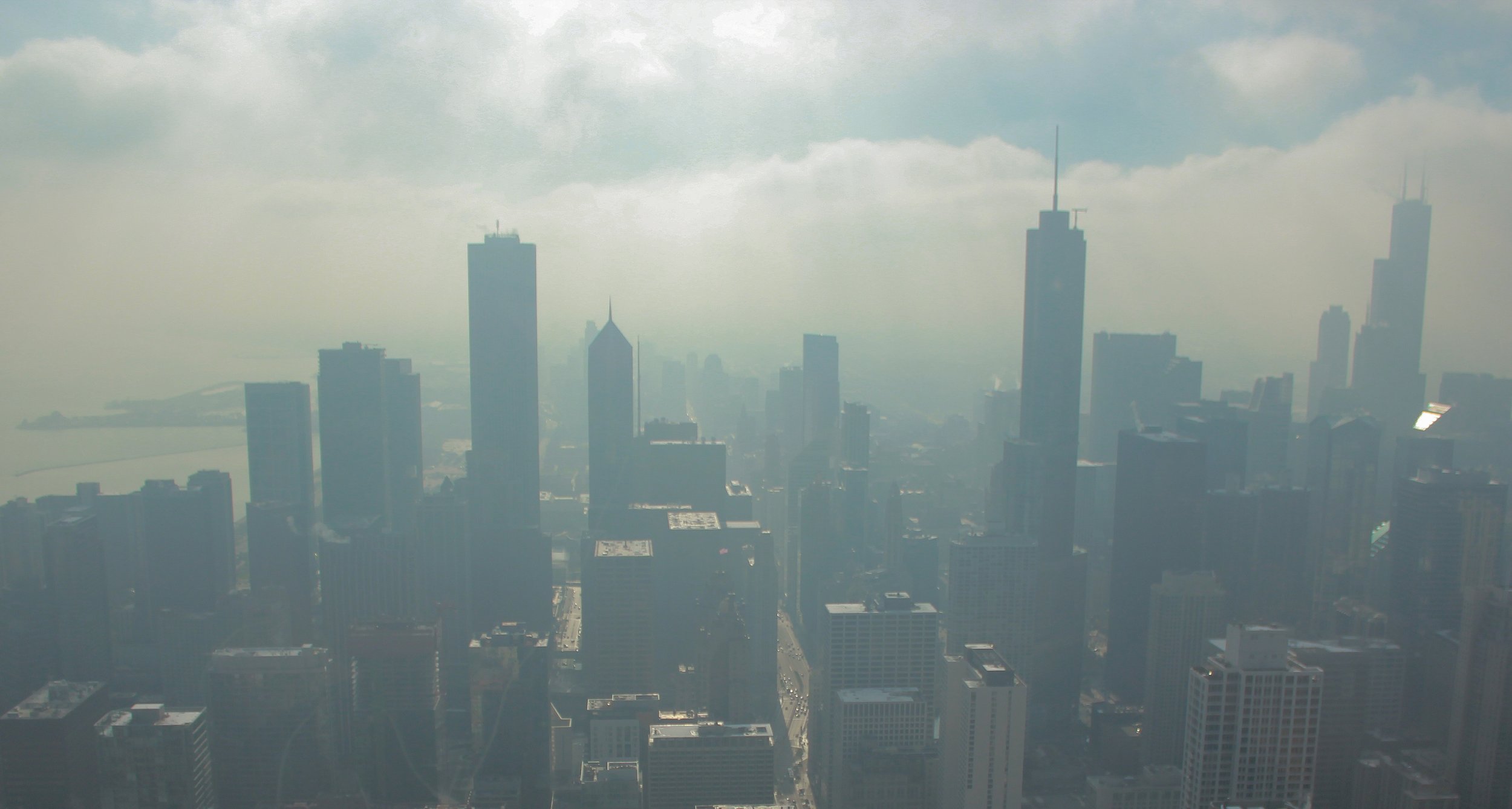An Active Voice for Little Village
Aerial view of Chicago smog by Wuttha Sripradisvarkul for Shutterstock.
By Xilo Penzado
Hello, everyone! I'm going to be talking about air pollution in Little Village, a community on Chicago’s West Side. When doing research on environmental justice and neighborhoods that struggle a lot with this problem, Little Village came into mind. I've researched and read about some of the issues going on around the neighborhood and one of them is air pollution. According to an article in the Chicago Tribune , Little Village struggles a lot with polluted air.
Residents complain about how the air isn’t healthy and creates health issues for children and residents that live in the neighborhood. People find it difficult to have their windows open because of the horrible smell. Diesel trucks are a big cause of the stink. According to the Tribune article, “The neighborhood is home to more than two dozen industrial facilities that use medium or heavy-duty diesel trucks, according to a 2019 count by the Little Village Environmental Justice Organization. It is also bordered by dozens of other facilities in adjacent neighborhoods.” Diesel trucks have been a major source of polluted air and health issues. People can't even tell the difference between fresh air and polluted air!
Circling back to the health issues, children who live in Little Village have struggled with asthma and pneumonia, according to the Chicago Tribune article. I did some research on air pollution to understand its effects on people. Here are some things I learned from the National Institute of Environmental Health Sciences (NIEHS): Air pollution can affect children’s respiratory systems. Those who already have asthma could develop bronchitis. For older adults, air pollution could cause an increased risk of dementia. Studies say that air pollution could be connected to Parkinson's disease and Alzheimer's disease. Pregnant women exposed to nitrogen oxide or nitrogen dioxide during their first 8 weeks of pregnancy may have more babies with neural tube defects, according to the NIEHS.
Plus, many residents in Little Village don’t have good access to doctors, which is another worrisome problem. Coughing up dark grey mucus or worrying about your kids or pets struggling to breathe is not right and isn't a healthy way to live.
The neighborhood isn't just standing by. Residents are taking action and want to see change. To do that, you have to understand that using your voice matters. An environmental activism group, LVEJO (Little Village Environmental Justice Organization), has worked with multiple people around the community to make sure that their voices have been heard. The organization worked with the Chicago Clean Power Coalition, and they were able to shut down two of the dirtiest coal plants to protect the residents. Now they are working on reducing pollution from the diesel trucks by trying to shut down warehouses and reducing the number of diesel trucks that drive through the neighborhood streets.
Learning about the climate issues in Little Village makes me feel motivated to get involved and learn more about other neighborhoods. I will continue to think about it. I feel pretty depressed about it. Readers, I don’t want to bring down your mood! But I feel very sad about it. All these kids and other people in this community are getting sick. It's made me realize that a lot of us aren't aware of air pollution in the city. It’s important that we learn about it and use our voices to change things. In my next blog, I'll be exploring sources of pollution and other things that endanger people’s health in the neighborhood I'm living in, Garfield Ridge. I don't really know the pollution sources here. I am aware that there is Midway Airport, and that's a huge polluter, but I need to investigate my neighborhood.
Xilo Penzado, a senior at Richard T. Crane Medical Prep High School in Chicago, is an Urban Alliance Intern working with One Earth Film Festival. She is blogging about her journey of learning about environmental justice issues.

